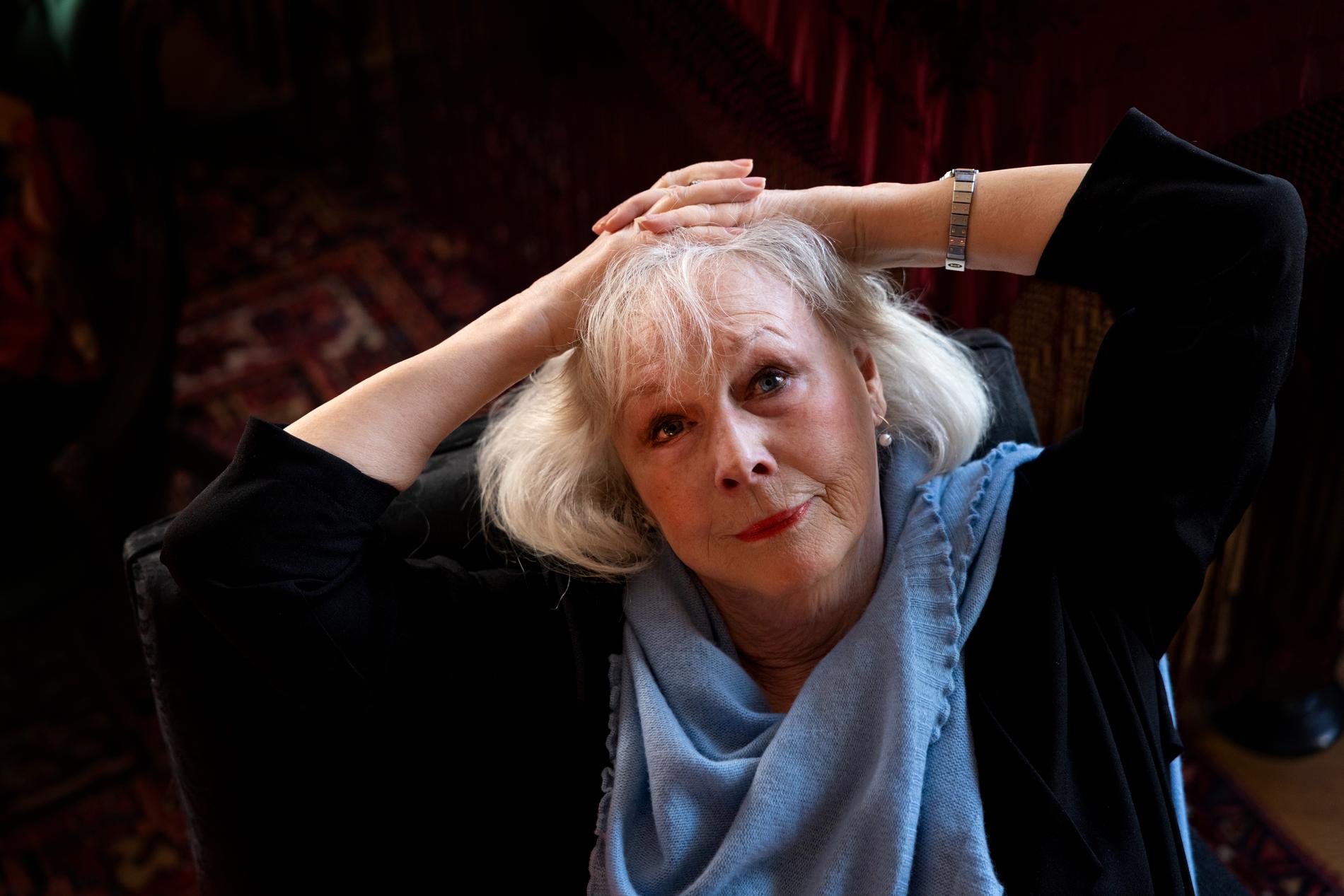Actress Lise Fjeldstad (83) is angry with Minister of Health Ingvild Kjerkol, and admits that she has taken drastic measures before she herself no longer has the health to fend for herself.
– I think it is wise for me to collect some pills so that I can decide for myself when I don’t want this life anymore, says Lise Fjeldstad.
On Tuesday, the well-known and high-profile actor was a guest in “News morning” on NRK. She was very clear about how worried she is – and what solutions she envisages in the worst case for herself.
– I really mean it, confirms Lise Fjeldstad to VG.
She is angry and upset after watching the Brennpunkt documentary “Care behind closed doors”.
The documentary has caused strong reactions after the viewers saw, among other things, how 90-year-old Lilly from Furuset in Oslo did not get the medicine and food she needs from the home service.
– There were shocking and shocking images. Without hope, without warmth. A contempt for humanity. We can’t just sit back and watch this. I am so angry now that I could cry blood, said Fjeldstad to NRK.
She says that the TV documentary scared her.
– The old people were so terribly afraid. It is so inhumane and I feel so sorry for the health workers who have so little time – and never reach around. I am so pissed off at the Minister of Health, who has the power to do something about this. But who just stand there with a smile and say that now we have to reduce expenses. It’s not possible.

City councilor in Oslo, Raymond Johansen, has also reacted to the Brennpunkt documentary about 90-year-old Lilly Andreassen at Furuset, which did not get enough food or medicinedespite the supervision of the home service.
I NRK’s Political quarter The city council leader responded, among other things, to the criticism that followed:
– It is heartbreaking to see the care that many elderly people have been exposed to. It is clear that we should not have it that way.
Lise Fjeldstad is really angry.
– This reveals a frightening brutality in the treatment of the sick and elderly. A view of humanity that no one can be familiar with. The Minister of Health must make us safe. Instead, this has become a cold society.
Fjeldstad clarifies both to NRK and VG that she is not yet dependent on help from the public.
– But I wouldn’t have managed without my two children, who do everything they can to ensure that I feel as well as possible. As long as possible. In this sense, I am very privileged. If I hadn’t had them, I would have panicked, says Fjeldstad to VG.

She still lives in the villa at Briskeby in Oslo. She was married to actor Per Sunderland until he died in 2012. Together they had children Peik and Blomma. Lise Fjeldstad was employed at the National Theater for 35 years.
– At the same time, I don’t want to burden my children too much either. I want to fend for myself as long as possible. Luckily my head is working, but I can’t walk long distances anymore. I am lucky and can afford to take a taxi. Not everyone has it. That is why it is important that help must come to us, says Lise Fjeldstad.
Tove Gundersen, secretary general of the Council for Mental Health, understands Lise Fjeldstad’s anger.
– But collecting pills can contribute to a dangerous development and influence. Suicide is neither the measure nor the solution, she writes in an email to VG.
She believes that it is to ensure social support, better staffing and greater investment, it is to put the plans into use for better care for the elderly.
– Politicians and health managers need to do more on the field. The council wants care homes with the opportunity to live with friends and family and have access to activities. These are objectives that we must strive for. Start early by gathering friends and family about a plan, she writes further.
VG has asked Health Minister Ingvild Kjerkol (Ap) for a comment.
– Brennpunkt’s documentary upsets us because it shows how we don’t want older people to feel. There is a lot to work on to ensure that more and more elderly people have a good old age and the right health care. Many municipalities also work well, we must also remember that, she writes to VG.
– The government will present a Bo Trygt home reform this spring – where we have to see the whole. There will still be a need for nursing home places, but in order for those who can and want to be able to live safely at home for as long as possible, we must strengthen home services and create some new housing solutions. And each of us who can must plan for his own old age.

Kjerkol has also replied to NTB:
– I share the commitment to good care for the elderly and take seriously the fact that there are variations between our municipalities. The stories that come to light are confirmation that not all places are good enough today. There is a need for improvement in current care for the elderly, she states in a written response to NTB.
The Minister of Health advocates that the municipalities must take action locally, but also says that the state must contribute. She says it is crucial that the employees have the right skills, and that the individual has enough colleagues.
– We have put forward a separate escalation plan for full-time and good staffing in the care service. The plan will help ensure enough professionals with the right skills in the care service, she says.
